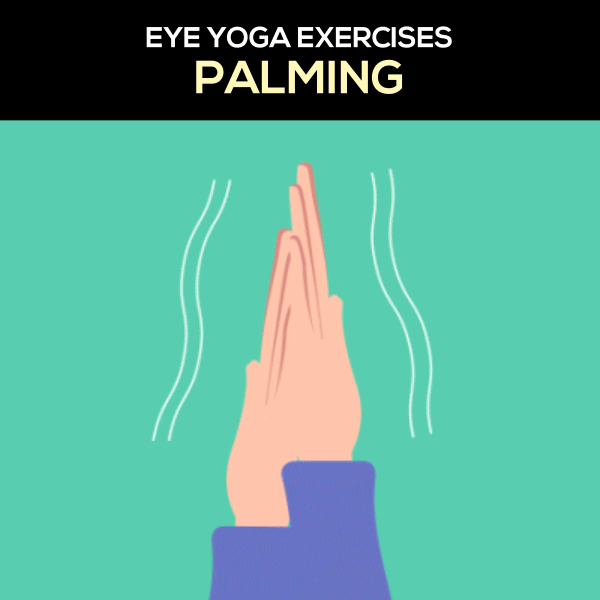
Practicing yoga has a wide range of benefits for both the body and the mind, but many people may wonder if they can do it. Yoga can have many other benefits than just physical ones. They can help reduce stress and relax. Yoga can be a great exercise option and a way to enjoy the benefits that meditation offers. This article will discuss some of yoga's benefits for everyone.
Yoga is suitable for everyone, whether you are a teenager or a senior, or a sedentary adult. Because it's a breathing exercise, it can be done by a wide range of people. Although it is challenging, it can also be very accessible. You don't need to be flexible in order to do yoga. You can use props to modify poses, or skip them altogether. There are many types of yoga classes: gentle, yin and restorative as well as slow-flow.
Yoga is possible as long as you are able to move and breathe freely. You can still practice yoga, even if it is difficult for you to move. There are modifications that can be made to make yoga more accessible for persons with disabilities. An important feature of accessible yoga is that it is not competitive - anyone can participate. There is no competition in yoga, and it doesn't matter if you're tall or skinny, as long as you have the flexibility to follow the postures.

Yoga is accessible to everyone. You can modify the poses to suit your needs if you are suffering from an injury or a medical condition. You can also find modifications that can help you practice safely and without causing too much pain. Yoga can be used as a holistic method of exercise to heal injuries. Yoga is possible even if you are unable to bend or lift your legs.
Anyone who is interested in yoga must be flexible. Even though yoga isn’t a competitive sport many people find that it is incredibly beneficial to their physical well-being. Yoga can be beneficial for anyone, no matter if you're an athlete or couch potato. By using breath and movement, you can make yoga more accessible to all. It's also great for people with limited mobility.
Another benefit is that yoga reduces inflammation. Chronic inflammation is a major reason for heart disease and cancer. It can also lead to suicide. Regular yoga practice can help to reduce the likelihood of these diseases. Yoga can help you be more relaxed and live a happier, healthier life. Yoga will help you to appreciate your body and yourself more. Moreover, you'll find yourself feeling more relaxed and less stressed.
Yoga is not a team sport. Anyone can do yoga and anyone can benefit. The best thing about yoga is that it is non-competitive and can be adapted to any body type. You don't have to be a pro athlete to participate in yoga; it's suitable for all levels of fitness. It is easy to do and low-impact.

Yoga is not only for women. It can be of benefit to men as well. Anyone can do yoga because it requires body weight and stretching. Yoga benefits are both physical and psychological. The more flexibility you have the greater the benefits. You can improve your life with yoga because it is an all-encompassing discipline. This is why yoga can prove to be a great asset.
Yoga benefits include better cardiovascular health, stronger immune systems, and a higher sense of well-being. Additionally, yoga can reduce the stress of modern corporate life. Even though yoga is an accessible practice, it doesn't require you to be a celebrity to do it. In fact, you can improve your overall health and well-being by incorporating yoga into your daily routine.
FAQ
Is it true that kidney stones can be caused by overeating protein?
Protein helps to maintain healthy bones, tissue, and skin. But consuming too much protein can lead to calcium excretion through urine. This can lead to kidney stones.
It is important to remember that not all people get kidney stones from eating more than 2g protein per kilogram (2.2lbs) of body weight. Some people can eat high amounts of protein without getting kidney stones.
Your sodium intake can prevent kidney stone formation. Sodium is important for maintaining the body's water balance. Too much sodium can cause kidney stones.
You can also reduce your intake of proteins if you develop kidney stones. About half of adults' daily caloric intake is made up of protein. Reduce your intake of protein and you will likely lose weight.
If you do decide to eat more protein, don't go overboard. Aim for less than 20% of total calories from protein.
What is butter good for?
Butter is one of the best sources of saturated fats. This fat is good for hair and skin health, as well as stronger bones.
Vitamin K in butter also prevents bleeding from cuts, bruises and other injuries. Vitamin K is combined with vitamin C to prevent bruises.
Butter is also rich in minerals, including calcium, phosphorous, and potassium. These elements help to build stronger bones and teeth.
However, butter has some drawbacks. Butter is high in cholesterol. Studies show that too much cholesterol can increase your risk of developing heart disease.
Butter is also high-fat, which can contribute to obesity and increase cholesterol.
However, if you must have butter, try spreading it on bread rather than dipping it into soup or salad. Bread absorbs less oil than pasta and potatoes.
How Metabolic Health is Key to Aging Well
Today's people live longer than ever before. However, people are getting sicker as they live longer. And while we've made great strides in medical science, it's becoming increasingly clear that our current approach isn't working.
We have to change how we see health and aging. Healthy aging is possible only if we look at our metabolic health, not just weight loss, but also overall well-being.
Your metabolism must be strong and healthy to ensure you live an active lifestyle for many years to come.
There are many options to improve your metabolic health. One way is to include these 7 foods in your diet.
-
Resveratrol has been found to be a key ingredient in blueberries, and it has been shown that it can help increase cell longevity. They also provide antioxidants and vitamins C & E.
-
Pinto beans and lentils make excellent sources of fiber as well as plant-based protein. These nutrients keep blood sugar levels stable so that they don't spike or crash.
-
Broccoli has sulforaphane. It has been proven to protect cells from DNA damage. It may even be able to slow down cancer progression.
-
Chia Seeds are high-in omega-3 fatty acids, fiber, and other nutrients. They are high in protein and antioxidants. All these nutrients support heart health, brain function and gut health.
-
Green tea contains catechins, which are polyphenols. Studies show that catechins in green Tea can reduce the risk of developing diabetes, stroke, cognitive decline, and bone fractures.
-
Salmonis a great source of lean protein. It is low in saturated fat and high in vitamin D.
-
Walnuts contain omega-3s and antioxidants like alpha lipoic acid (ALA). ALA protects against inflammation and boosts energy production.
Statistics
- Candidates and applicants must pass all four tests at 70% (minimum level) to graduate from Basic Deputy U.S. Marshal (BDUSM) Training. (usmarshals.gov)
- According to the American Heart Association, blood pressure should be checked at least once every two years, beginning at age 20. (my.clevelandclinic.org)
- Get free shipping and 25% off today. (healthline.com)
- According to the American Academy of Dermatology (AAD), men over 50 are at a heightened risk of developing it. (healthline.com)
- Are You One of the 20% of Guys (mh.co.za)
External Links
How To
How do I lose weight while working out?
Exercise burns calories by increasing metabolism and oxygen consumption.
Moderate intensity exercise is a safe way to lose weight.
These are some tips to help you lose fat while working out:
-
Do cardio exercises such as walking, swimming, jogging, cycling, running, or elliptical training.
-
Exercise for 30 minutes three times per week.
-
You can lose weight by adding strength training to the routine.
-
Avoid intense exercise. It is possible to build muscle without destroying muscle tissue.
-
When exercising, make sure to drink lots of water. Water helps to flush out toxins from the body and maintains proper hydration.
-
After working out, make sure to drink low-fat proteins shakes. Protein shakes help repair muscles and boosts energy.
-
You can eat smaller meals throughout the day so that you don't feel hungry in between meals.
-
Don't skip breakfast! Skipping breakfast can cause you to feel tired and sluggish.
-
Take care of your mind. Stressful situations can slow down metabolism.
-
Keep a positive attitude. Research shows that overweight people gain more weight if they believe they are overweight than those who believe they look good.
-
Get enough sleep. You will have a harder time losing weight if you do not get enough sleep.
-
Keep active. Move around at least once an hour.
-
Maintain a healthy diet. You will feel fuller longer if you eat right.
-
Find relaxation techniques. Tenseness can cause stress hormones to break down muscle tissue.
A balanced diet is one that includes all of the essential nutrients required for growth.
Instead of eating three large meals a day, eat six smaller meals every day. This gives your body more time to digest the food you eat.
You need about 500 milligrams of calcium daily to maintain strong bones. Calcium is available in dairy products like milk, yogurt, fortified soy beverages, orange juice, cereal, bread, and cereals.
Calcium can be found in leafy green veggies, beans, tofu and nuts as well as seeds, nuts and cheese.
Vitamin D is required by the body to absorb calcium. Vitamin D can also be found in some fortified foods such as eggs, fish, and yolk.
Vitamin E is crucial for skin health. Vitamin E can also be found in vegetable oil, wheat germ oils, peanuts as well almonds, sunflower seeds and corn.
Zinc is essential for healthy immunity and wound healing. Zinc can also be found in legumes, oysters, meats and whole grains.
Zinc deficiencies can lead to fatigue, decreased appetite, depression, and reduced immunity.
Insulin resistance is caused by eating too much sugar, which can increase blood glucose levels. Insulin resistance is linked to weight gain.
Insulin resistance is caused by high blood levels of free-radicals. Free radicals are molecules with unpaired electrons that damage cell membranes and other parts of the body.
Most free radicals come from pesticides herbicides, food additives, preservatives smoking, radiation, chemical in cosmetics, lotions and household cleaning supplies.
Free radicals can lead to cancer and heart disease, diabetes mellitus, arthritis, asthma, and premature aging.
The best way to avoid free radicals is to eat a balanced diet high in antioxidants. Antioxidants protect against oxidative damage.
Vitamin C is found in citrus fruits and beta carotene is found in carrots.
Other antioxidant nutrients include selenium, copper, manganese, and zinc.
Selenium is known to protect cells from the oxidative damage that free radicals can cause. Selenium is also found in Brazil nuts.
Copper protects your eyes, brain, eyes and red blood cell. Copper is also found in poultry, meat, and organs.
Manganese is essential for bone structure. Manganese is found in brown rice, spinach, bananas, prunes, raisins, oatmeal, and lentils.
Zinc is necessary for average growth, reproduction, and wound healing. Zn can be found in lean cuts, white fish, poultry, eggs, and other foods.